Masters of the art of fiction – or perhaps I should say the craft of fiction, for it is these authors’ mischievous craftiness that accounts for a great deal of the delights of their new works. Me, I couldn’t be happier. New literary voices are all well and good but oh, to read again an author you have loved for years and find that she or he is still writing up a storm! That’s not just happiness, that’s joy.
Want to win a copy of one of these books? To enter to win, comment below by answering the question:
Which of these books do you want to read and why?
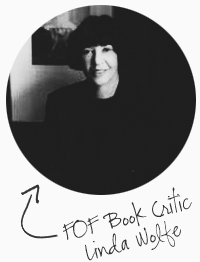
FOF award-winning author, Linda Wolfe, has published eleven books and has contributed to numerous publications including New York Magazine, The New York Times, and served the board of the National Book Critics Circle for many years.
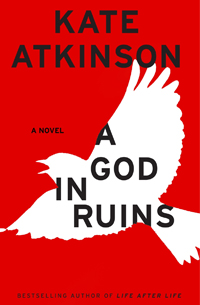
A GOD IN RUINS
by Kate Atkinson
Little, Brown; Co. 468 pp.
A God in Ruins is another triumph for Kate Atkinson, whose magnificent Life After Life told the story of Ursula Todd of Fox Corner, daughter of an uppercrust British family, from the start of the turbulent 20th century to World War II and its anticlimactic aftermath. That book playfully experimented with time and chronology, allowing Ursula to live many different lives, including one in which she assassinates Hitler. But the most compelling of her lives, and the most unforgettable section of the book, is the one she lives during the devastating Nazi blitz of London.
 A God in Ruins is the story of one of Ursula’s brothers, Teddy, a minor player in Life After Life. Teddy is a child who loves nature, insects and plants, the shape-shifting of clouds, the soaring of birds. Grown up, he becomes an RAF pilot during the war, a hero who flies and incredibly survives more than seventy bombing raids over Nazi occupied territory and the heartland of Germany itself. Teddy’s war, vividly evoked by Atkinson, is a time of glory — his crew’s “faith in Teddy’s abilities to get them to the target and home again had become unshakeable.” It is also a time of unspeakable horror, of near crashes, wings coated with ice, flak bursting through fuselages, deadly fires, the harrowing deaths of crew members. After the war, Teddy suffers from insomnia, and in the dark watches of the night he recites: Essen Bremen Wilhelmshaven Duisberg Vegesak Hamburg Saarbrucken…Stuttgart, Berlin Nuremberg. Some might count sheep. Teddy counted the towns and cities he had tried to destroy, that had tried to destroy him.”
A God in Ruins is the story of one of Ursula’s brothers, Teddy, a minor player in Life After Life. Teddy is a child who loves nature, insects and plants, the shape-shifting of clouds, the soaring of birds. Grown up, he becomes an RAF pilot during the war, a hero who flies and incredibly survives more than seventy bombing raids over Nazi occupied territory and the heartland of Germany itself. Teddy’s war, vividly evoked by Atkinson, is a time of glory — his crew’s “faith in Teddy’s abilities to get them to the target and home again had become unshakeable.” It is also a time of unspeakable horror, of near crashes, wings coated with ice, flak bursting through fuselages, deadly fires, the harrowing deaths of crew members. After the war, Teddy suffers from insomnia, and in the dark watches of the night he recites: Essen Bremen Wilhelmshaven Duisberg Vegesak Hamburg Saarbrucken…Stuttgart, Berlin Nuremberg. Some might count sheep. Teddy counted the towns and cities he had tried to destroy, that had tried to destroy him.”
The war doesn’t destroy Teddy. But life itself does, that is, the kind of life we all eventually endure, with its thwarting of youthful ambition, its dreary dailiness, the loss of friends and partners, and, above all, the inevitable sadness of aging. Teddy “had been reconciled to death during the war and then suddenly the war was over and there was a next day and a next day and a next day. Part of him never adjusted to having a future.”
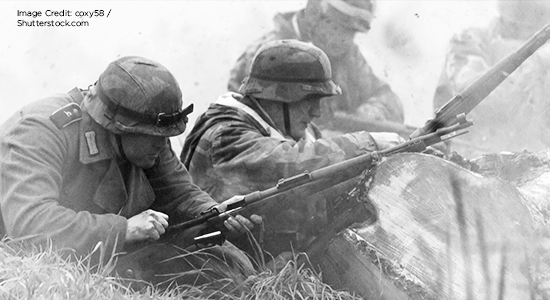
In an effort to map out a future for himself, Teddy, having seen so much viciousness in the world, vows always to be kind. And he succeeds at this, despite having to deal with his only child, his daughter Viola, a solipsistic hippie who is malice incarnate. She neglects her own children, scorns her father and his wartime exploits, and has no regard for anyone but herself. Her children can’t abide her, and she is cruel to Teddy. But Teddy’s grandchildren adore him. With enormous skill Atkinson interweaves their stories along with those of Viola, who becomes the successful author of trashy novels, and of Teddy, who subsides after a very long life into the fraility of old age.
Less experimental than Life After Life, A God in Ruins has a compelling narrative, a myriad of unforgettable scenes, and a bit of the old Atkinson playful craftiness at the very end, a mischievous Ian McEwan-like investigation into the curious ways of fiction writers.
Altogether dazzling, A God in Ruins is my pick for the best (so far) novel of 2015.
![]()

KILLER, COME HITHER
by Louis Begley. Nan A.Talese/Doubleday
248 pp.
Begley is most famous for his semi-autobiographical Wartime Lies, about a Jewish boy who survived the holocaust due to the canniness of his aunt, and the Schmidt novels, including About Schmidt, which was turned into a peculiarly unfaithful-to-the-book film of the same name, starring Jack Nicholson. In Killer, Come Hither, the author has done something altogether new – and rather sly. The narrators in most of his previous books have been buttoned-up aging WASPs yearning for their youth, longing to once again be robust. But this time he has put his authorial voice into that of an exceedingly robust young man, former Marine Corps Infantry officer Jack Dana, wounded while serving in Afghanistan and Iraq. Begley’s previous narrators, often lawyers at white-shoe law firms, inhabit a world of privilege and one of the pleasures of Begley has long been his crisp, controlled prose revealing how that world works – and how and where it plays, eats and drinks, falls into love or out of love. It’s a world Begley knows.
Killer is something different: a thriller, an excursion into a genre Begley has never before attempted. There’s a gruesome crime, and the man trying to solve it is the war hero Jack, who has learned that his beloved 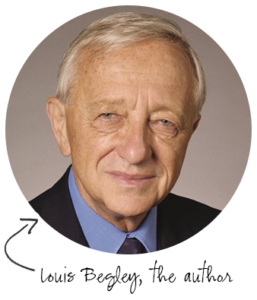 uncle, Harry Dana, who raised him after his parents died prematurely, has been found dead, presumably by suicide. Jack can’t believe his uncle would have killed himself, and decides to investigate the death. There ensues a twisty terror-loaded tale, with vicious criminals, high-up cover-ups, danger and derring-do, as Jack tries to catch Harry’s killer by abjuring the law and taking matters into his own exceedingly clever hands. Begley’s bit of crafty cunning is that the world of privilege he writes so engagingly about is still here, albeit as seen through the eyes of his young hero, for it seems that Jack’s uncle was a lawyer at a white-shoe law firm.
uncle, Harry Dana, who raised him after his parents died prematurely, has been found dead, presumably by suicide. Jack can’t believe his uncle would have killed himself, and decides to investigate the death. There ensues a twisty terror-loaded tale, with vicious criminals, high-up cover-ups, danger and derring-do, as Jack tries to catch Harry’s killer by abjuring the law and taking matters into his own exceedingly clever hands. Begley’s bit of crafty cunning is that the world of privilege he writes so engagingly about is still here, albeit as seen through the eyes of his young hero, for it seems that Jack’s uncle was a lawyer at a white-shoe law firm.
There’s always something exciting about seeing a literary master with a bookshelf of novels under his belt attempt something altogether new. And there’s something even more exciting about seeing him succeed. Killer, which still boasts Begley’s elegant and subtle prose, is a page-turner.
![]()

GOD HELP THE CHILD
by Toni Morrison
Alfred A. Knopf. 178 pp.
Toni Morrison’s latest accomplishment is God Help the Child, her eleventh novel. She may be 84 years old, but she’s still trying out new things, in this case, the story of Bride, a young black woman who has achieved success in the corporate world. Working for a beauty products company, she has produced and is about to start marketing her own line of cosmetics. Bride has a stylist who has directed her wardrobe (all her clothes are white, to better set off her “blue-black” skin). She drives a Jaguar, and dates celebrities.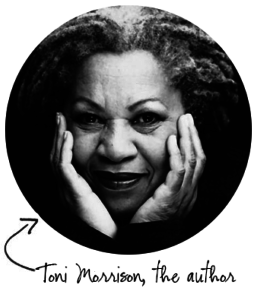
We learn very little about Bride’s life near the top of the glass ceiling. Instead, Morrison focuses on Bride’s troubled childhood, and on the things that happen to her when she leaves her job to go in search of her vanished lover, Booker, the only man to whom she has ever opened her heart. Morrison has long been telling us that past injuries produce damaged human goods. However, unlike in earlier books like the incandescent Beloved and Song of Solomon, in God Help the Child, it is not the dark past of slavery that has damaged Morrison’s characters, but rather, emotional injuries connected to child abuse.
Bride’s mother was a woman named Sweetness, who was anything but sweet to her daughter. A light-skinned black woman with a grandmother who passed for white, Sweetness was horrified when she gave birth to a baby whose skin was “so black she scared me. Midnight black, Sudanese black…Tar.” The abuse Bride experiences comes from Sweetness’s rejection. Sweetness is never overtly cruel, but she is an ice-cold mother who shuns her daughter and doesn’t even want to touch her skin when she bathes her. Booker’s brush with child abuse is of a different sort. A happy child in a large and happy family, Booker is particularly devoted to Adam, a slightly older brother who “was the one who knew what Booker was thinking, feeling, whose humor was both raucous and instructive but never cruel, the smartest one who loved each of his siblings, but Booker especially.” Child abuse strikes Booker indirectly via a pedophile who tortures and murders ten-year-old Adam. Without his brother, Booker feels like he’s just half a person, and even when he is grown and has completed college and an M.A. program, he is perpetually grieving and depressed, unable to pursue a career, and unwilling to love anyone deeply again. (Not that this keeps him from giving good sex. He and Bride perform “sexual choreography …in every nook of Bride’s apartment.”) Uneasy, Booker suddenly runs away.
Still, as God Help the Child is a kind of fairy-tale, lo’ and behold, a good fairy turns up in the person of an aunt of Booker’s named Queen, who counsels both Booker and Bride, and with her guidance and wisdom they each begin to overcome their inability to love.

Unfortunately, however, the novel doesn’t overcome its deficiencies. The author has a tendency to introduce fascinating characters like Sweetness, or Bride’s best friend Brooklyn, “chalk white with blond dreadlocks,” or Sofia, a schoolteacher falsely accused by Bride of fondling classmates, and then dropping or disappearing them. She also unnervingly pops into her realistic narrative tidbits of magical realism: when she is feeling like a “scared little girl again,” Bride’s breasts shrink, her pierced ears close up, and her pubic hair vanishes. God gets off to a scintillating start, but somewhere in the middle it gets muddled, scenes aren’t fully developed, and the author seems to be in a hurry to get onto her next project.
To enter to win your book of choice,
comment below by answering the question:
Which of these books do you want to read and why?
1 FOF will win. (See official rules, here.) Contest closes June 10, 2015 at midnight E.S.T. Contest limited to residents of the continental U.S.
